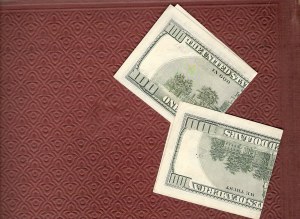  The Forty-third Congress had three months of existence left to it after the vote of November, 1874. Already defeated overwhelmingly at the polls, it had nothing to risk by a move in sound-money legislation, and possibly much to gain. It used this three-months' period to enact a law of the first importance, not only to the nation, but to the Republican party's future history -- a law which must fairly be described, however, under the circumstances of the time, as an expression of death-bed repentance. This was the Specie-Resumption Act, drawn up by a party committee, and submitted to Congress, in December, 1874, by Senator John Sherman. It fixed the date for resumption of specie payments at January 1, 1879, provided for the reduction of legal-tender notes from $382,000,000 to $300,000,000, but made no provision for any further retirement of the notes. It went through Congress on January 7, 1875. It was contended by some that under the Resumption Act of 1875 there could be no reissue of the greenbacks once received into the Treasury. Inflationist successes of 1877-1878 settled this uncertainty, as Congress, May 31, 1878, ordered that there be no further destruction of greenbacks.
|